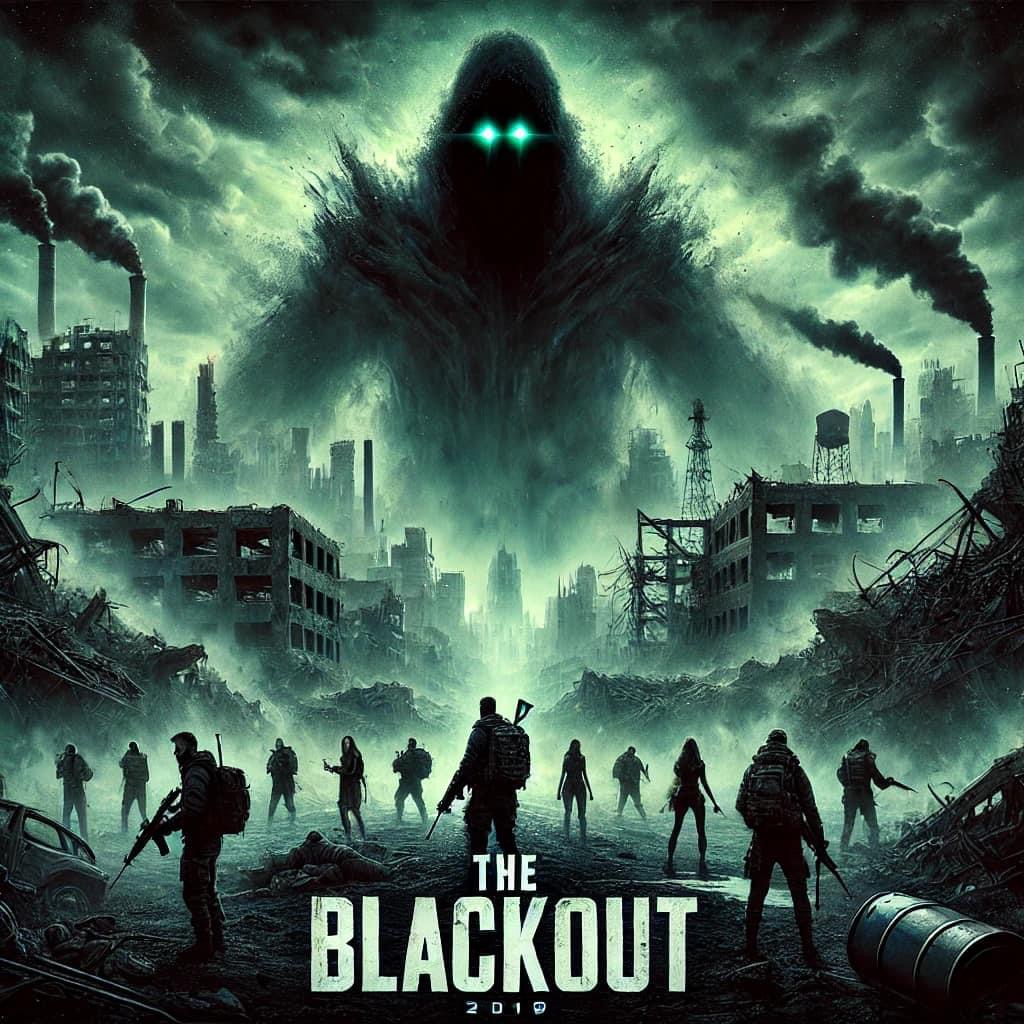The Blackout (2019)

The Blackout (2019), also known as Avanpost in its native Russia, is a post-apocalyptic science fiction film directed by Egor Baranov. It merges elements of military action, science fiction, and dystopian horror to craft a film that attempts to stand apart from the typical Hollyword fare. Released with little international fanfare, it became a sleeper hit among fans of the genre, offering a unique take on the apocalyptic narrative with its Russian setting and worldview. While The Blackout offers moments of intense action and atmospheric tension, it is a mixed bag when it comes to character development, pacing, and thematic depth.
Suggested videos for you:
Plot Summary
The story is set in a near-future world where an inexplicable phenomenon plunges most of the Earth into darkness, severing communication and life itself in the affected areas. The only place left untouched is a large section of Eastern Europe, primarily Russia and parts of Eastern Europe. In this “circle of life,” humanity is left to grapple with what happened, as they quickly realize that everyone outside this zone is either dead or turned into hostile, zombie-like beings.
As the Russian military organizes to protect the remaining survivors and investigate the cause of the blackout, they uncover the presence of an extraterrestrial force behind the apocalypse. As the film progresses, it becomes clear that an advanced alien race is orchestrating the downfall of humanity, and the fate of the world lies in the hands of a small group of soldiers and scientists who must find a way to stop the impending invasion.
Cinematography and Visual Effects
One of the film’s strongest aspects is its visual presentation. The Blackout is undeniably impressive on a technical level, especially considering its modest budget relative to blockbuster Hollywood productions. The post-apocalyptic world is brought to life through a combination of stark, desolate landscapes and futuristic military technology, giving the film a polished, dystopian feel.
The action sequences are meticulously choreographed and make effective use of CGI to showcase large-scale destruction, military engagements, and alien technology. The early scenes depicting the chaos caused by the blackout, with people dropping dead or turning into hostile zombies, are viscerally effective, establishing a sense of urgency and despair. The film doesn’t shy away from showing the brutal consequences of the apocalypse, with cities left in ruins, corpses littering the streets, and survivors forced into harsh military action.
The alien designs and their technology are a mixed bag. While the alien antagonists are portrayed as humanoid and technologically superior, their overall appearance and the visual representation of their ships are somewhat generic, reminiscent of tropes found in other alien invasion films. Nevertheless, the film’s art direction maintains a consistent, gritty aesthetic that complements the overall bleak tone.
Characters and Performances
The film’s characters are where The Blackout begins to falter. While it features an ensemble cast of soldiers, scientists, and civilians, few of the characters are given enough depth to make them stand out. Most of the protagonists fall into familiar archetypes—stoic military leaders, idealistic young soldiers, and pragmatic scientists. The lack of significant character development limits the audience’s emotional investment in their fates, particularly when key members of the group are put in peril.
The film centers around a few key figures: Oleg (Aleksey Chadov), a Russian officer, Alena (Svetlana Ivanova), a scientist, and Yuriy (Pyotr Fyodorov), another soldier, among others. While the actors give competent performances, the script doesn’t provide enough opportunities for deeper emotional or psychological exploration. The result is that many of the interactions feel somewhat flat, with the characters serving primarily as vehicles to drive the plot forward rather than fully realized individuals.
However, it is worth noting that the performances are solid within the limitations of the script. Aleksey Chadov, in particular, brings a level of gravitas to his role as Oleg, portraying a hardened military man forced to confront both the devastation of the blackout and the existential threat posed by the aliens. Likewise, Svetlana Ivanova as Alena offers a more emotionally grounded performance as a scientist trying to find hope amidst the destruction.
Themes and Worldbuilding
The Blackout delves into a number of interesting themes, including the fragility of humanity in the face of a superior force and the moral ambiguities of survival during a global catastrophe. The film also explores themes of isolation, given that the surviving humans are cut off from the rest of the world, and the psychological toll that comes with being the last bastion of life on Earth.
The idea that humans are fighting not just for survival but also for their place in the universe against a more advanced alien race echoes common tropes in science fiction, reminiscent of films like Independence Day or War of the Worlds. However, the Russian context and perspective add a distinct flavor to the narrative. The film emphasizes themes of resilience and unity under pressure, with the surviving humans forming a militarized society to fend off the alien invaders.
One of the film’s more intriguing narrative elements is its exploration of the aliens’ motives. Without giving too much away, the invaders are not merely mindless killers but possess their own history, culture, and rationale for their actions. This adds a layer of complexity to the story, as the humans are forced to confront not only a superior foe but also their place in a broader, possibly predestined conflict.
However, despite its thematic potential, The Blackout sometimes struggles to maintain a balance between high-concept ideas and action-driven spectacle. The pacing suffers in the latter half of the film, with the narrative jumping between intense battle sequences and slower moments of exposition that don’t always seamlessly blend together. The film’s focus on military action and alien conflict comes at the expense of deeper exploration of its philosophical themes.
Action and Pacing
The film excels in its action sequences, which are tense, explosive, and satisfyingly brutal. Military engagements with the alien invaders are well-staged and make effective use of the film’s post-apocalyptic setting. The film’s use of Russian military hardware, tactics, and personnel adds an element of authenticity to the combat sequences, which are among the most exciting parts of the film.
That said, the film’s pacing can feel uneven at times. After a fast-paced and engaging opening act, the middle section of the film slows down considerably as the characters attempt to unravel the mystery behind the blackout and the alien invasion. While these moments provide necessary exposition, they occasionally drag, pulling the film’s momentum to a halt. By the time the climactic third act rolls around, the action picks up again, though some viewers may find the film’s length and slow-burn approach to be a bit too drawn out.
Conclusion
The Blackout (2019) is a visually striking and ambitious post-apocalyptic sci-fi film that succeeds in delivering intense action and an intriguing premise. Its strengths lie in its high-quality special effects, brutal combat sequences, and the unique Russian cultural perspective it brings to the genre. However, it falls short when it comes to character development, pacing, and fully fleshing out its thematic potential.
For fans of military science fiction and post-apocalyptic scenarios, The Blackout offers enough spectacle and intrigue to make it worth a watch, even if it doesn’t quite reach the heights of its Western counterparts. While it doesn’t break much new ground in terms of narrative or character depth, it remains an entertaining and visually impressive addition to the sci-fi genre, particularly for those looking for something outside of the Hollywood mainstream.











